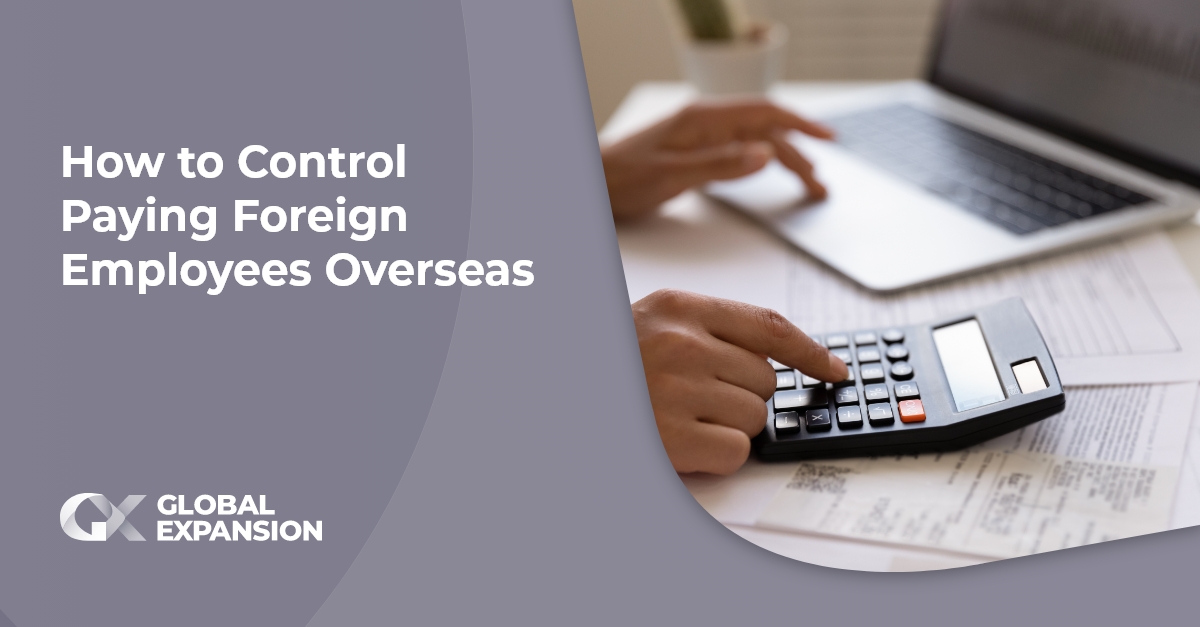If you are considering hiring talent in Canada, you must understand the Canadian government's pay standards.
Canada has three provinces and ten territories in total. The minimum wages are typically altered due to changes in the cost of living, economic conditions, or governmental choices
The minimum wage in Canada is an important aspect of "labor policy," impacting the economic climate for employers and employees. In this article, we have compiled a list of the minimum wages in Canada alongside key insights.
The Minimum Wage in Canada
Minimum wage legislation ensures every employee's basic standard of living while reducing poverty and economic disparities. Adjustments are frequently associated with living costs and inflation rates, guaranteeing the salary's worth does not decline over time.
Minimum pay is essential in determining labor markets and the overall economy. They offer vital worker safety, guarantee a basic income level, and can have far-reaching consequences for the economy. In Canada, different provinces offer different wage ranges. For instance, Alberta's minimum wage differs from the minimum wage in Ontario Canada.
However, establishing minimum salaries requires careful thought to balance the benefits of increased pay against potential negative impacts on employment and company expenses.
Purpose of the Minimum Wage in Canada
- Maintaining a Basic Wage: The primary objective of minimum wage is to provide every employee with a base income sufficient to cover required living expenditures.
- Minimize Poverty: Minimum wages help alleviate poverty among working people and reduce economic disparities. They ensure that workers, particularly those in "low-wage jobs," are paid enough to sustain a decent standard of life.
- GDP Growth Consideration: The minimum wage enhances the earning potential of the "lowest-paid workers," which can contribute to economic growth. Higher incomes typically lead to increased consumer spending, which improves demand for goods and services.
- Compensation Uniformity: They help to standardize wages across industries, restrict exploitative pay practices, and provide fair compensation for workers.
Effects of the Minimum Wage in Canada
On Workers and Households:
Strength: Higher income, lower poverty rates, and higher living standards.
Weaknesses: Businesses may decrease job possibilities to counter increasing labor expenses.
On Businesses:
Strength: Outcomes include increased productivity, less staff turnover, and improved morale.
Weaknesses: Increased labor expenses may result in higher prices for goods and services or worse profitability.
On Economic Growth:
Strength: Increase in consumer spending, which can spur economic growth.
Weaknesses: There is the possibility of inflationary pressures if higher prices are quoted to the consumers.
Provincial Minimum Wages in Canada
As previously stated, the provinces determine what is the minimum wage in Canada within their authority. Some provinces altered their minimum wage rates, while others did not. Visit the approved provincial government websites to learn about what is the minimum wage in Canada for general workers.
Let's take a closer look at what is the minimum wage in Canadian provinces.
|
Jurisdiction |
Minimum Wage |
|
Yukon |
16.77 dollars |
|
Saskatchewan |
14 dollars |
|
Alberta |
15 dollars |
|
Manitoba |
15.30 dollars |
|
British Columbia |
16.75 dollars |
|
Quebec |
15.25 dollars |
|
Prince Edward Island |
15 dollars |
|
Nunavut |
16 dollars |
|
Ontario |
16.55 dollars |
|
Northwest Territories |
16.05 dollars |
|
New Brunswick |
14.75 dollars |
|
Newfoundland and Labrador |
15 dollars |
|
Nova Scotia |
15 dollars |
Ready to launch your Canadian venture and build your dream team? Then mastering the recruitment process is key! This guide unlocks the secrets of how to hire employees in Canada, equipping you with the knowledge to confidently navigate every step.
Minimum Wage in Canada - Alberta
"The basic pay scale range in Alberta's region is “$15.00” an hour."
- The minimum wage in Canada for “overseas scholars” (under 18 years of age) > is $13.00 hourly.
- The minimum weekly salary for Salespersons and land agents is $598.
The minimum wage for domestic employees:
- Residing with the employer = $2,848/month.
- Living with the employer = $15.00/hour.
Minimum Wage in Canada - Saskatchewan
The current base pay in Saskatchewan is $13.00 per hour.
The minimum wage will rise to $15.00 from October 1, 2024.
Excluded categories from the minimum wage regulations include.
- Farming and ranching employees.
- Market garden laborers.
- Certain private homecare employees.
- Professional athletes.
- Specific employees of non-profit organizations.
Minimum Wage in Ontario Canada - Ontario
The minimum wage in Ontario Canada is $15.50 an hour.
For international students, it is $14.60 an hour.
For domestic workers, it is $17.05 an hour.
The minimum wage in Ontario Canada is different for domestic or homeworker roles:
- Sewing for clothing manufacturers
- Answering phones for call centers
- Other work as a house help.
The minimum wage in Ontario, Canada guidelines apply even to those who work on commission. Their paychecks must meet the appropriate hourly minimum wage for their sector.
Minimum Wage in Canada - British Columbia
The Canadian minimum wage per hour in British Columbia is $15.65.
- The pay range for live-in camp workers is $125.06/day.
- For live-in home support workers, it is $116.68/day.
Minimum Wage in Canada - Manitoba
The Canada minimum wage per hour in Manitoba is $14.15.
Certain groups are exempt from the hourly minimum wage requirements:
- Domestic workers who work less than 12 hours each week.
- Individuals involved in an approved federal or provincial training program.
- Election officials and enumerators.
- Residential building or house construction daily wage workers are entitled to receive the defined minimum wage.
- Heavy construction workers and employees in the “industrial, commercial, and institutional (ICI) sectors” have specific rates based on their specialty.
Minimum Wage in Canada - New Brunswick
The minimum wage in New Brunswick is $14.75 an hour.
- The province enforces a “minimum pay rate of $22.13 / hour” for overtime work.
- “Employers must pay their employees for at least “3 hours of work on single pay cheque” if the employee has been officially asked to report to work.”
- Construction and trades workers participating in government construction work and summer camp staff have special rates that may differ from the general minimum wage.
Minimum Wage in Canada - Newfoundland & Labrador
The minimum wage in Newfoundland and Labrador is $14.50/hour.
Employees in government construction have specific rates based on their skills.
Minimum Wage in Canada - Northwest Territories
The Minimum pay rate in the Northwest Territories is $15.20 an hour.
On "recall pay," the employer must pay for at least 4 hours of labor at the usual rate. Employees who leave early will be paid for the minimum needed hours.
Minimum Wage in Canada - Nova Scotia
The minimum pay range in Nova Scotia is $15.00 an hour.
- Employees summoned into work “outside of their regular schedule” must be paid a minimum of 3 hours' salary, even if they do not work the entire 3 hours.
- Piecework employees must be paid at or above the province's minimum hourly wage (E.g. $15.00) since they are compensated based on the amount produced rather than an hourly rate.
Regulations specify deductions for room and board, with weekly amounts set as follows:
- $68.20 for board and lodging
- $55.55 for board only
- $15.45 for lodging only
- $3.65 for a single meal.
Employers may charge employees for their organization’s uniforms, but such deductions are not considered; if they result in remuneration below the minimum wage for the hours worked.
Minimum Wage in Canada - Nunavut
The minimum wage in Nunavut is set at $16.00 hourly.
- According to recall pay standards, employees must be paid for four hours of labor if they are called in outside their usual schedule, regardless of whether they work the entire four hours.
- Trappers and commercial fisheries workers are free from minimum wage rules.
Minimum Wage in Canada - Prince Edward Island
"This is the isolated Canadian region offering the employees a minimum wage of $14.50 hourly."
Other provinces of Canada have different policies, whereas PEI does not specify different rates for different types of workers.
Employers in PEI have regulations regarding deductions for room and board:
- Weekly deductions can be a maximum of $61.60 for board and lodging.
- Maximum deductions for board only are $49.50 per week.
- Total deductions for lodging only are $27.50 per week.
- A full deduction of $4.25 can be made for a single meal.
Minimum Wage in Canada - Quebec
The minimum pay rate in the Canadian region of Quebec is $14.25 an hour.
Employees who receive tips, "such as serving staff and hairdressers," have a separate minimum wage rate of $11.40 / hour.
Berry pickers in Quebec have specific wage rates:
- $4.23 per kilogram of raspberries.
- $1.13 per kilogram of strawberries.
Minimum Wage in Canada - Yukon
The minimum wage in Yukon is $16.77 an hour.
Yukon has a fair wage for government workers, tradespeople, and other occupations.
Tradespeople in Yukon are paid based on their category, Including-
- Category A Class: $38.90 / hour
- Category B Class: $34.87 / hour
- Category C Class: $30.93 / hour
- Category D Class: $28.07 / hour
Stay up to date with what is the Minimum Wage in Canada List. Whenever it is updated, we will notify you of all the data about the revised minimum pay range list.
Hoping that this What is the Minimum Wage in Canada blog may help you if you plan to relocate to an international location like Ontario. It is required to know all about what is the minimum wage in Ontario Canada, for smooth onboarding and survival planning.
Hiring in Canada can be particularly complex for newcomers navigating the intricacies of the country's market. Careful consideration of Canadian labor laws, taxes, and employee policies is crucial.
Minimum Wage in Canada: A Summary
To summarize, the increase in the federal minimum wage to $16.65 per hour in 2024 significantly impacts workers' incomes across many industries in Canada. Both businesses and employees must be informed about these changes and understand their ramifications.
If you intend to immigrate to Canada or any province, seek expert advice on navigating the PR process from scratch. Seek advice from a reputed Immigration Consultant. Information from a skilled staff can give critical help while ensuring that the newest requirements are met.
Save Time, Money and Resources with Global Expansion
Our Employer of Record (EOR) services can streamline your global workforce. Hire faster, farther, and smarter while saving thousands on entity establishment.
Talk to our expert team about how you can access the finest Canadian talent, stay compliant, and focus on growing your company.
Subscribe to our blog
Receive the latest GX blog posts and updates in your inbox.





